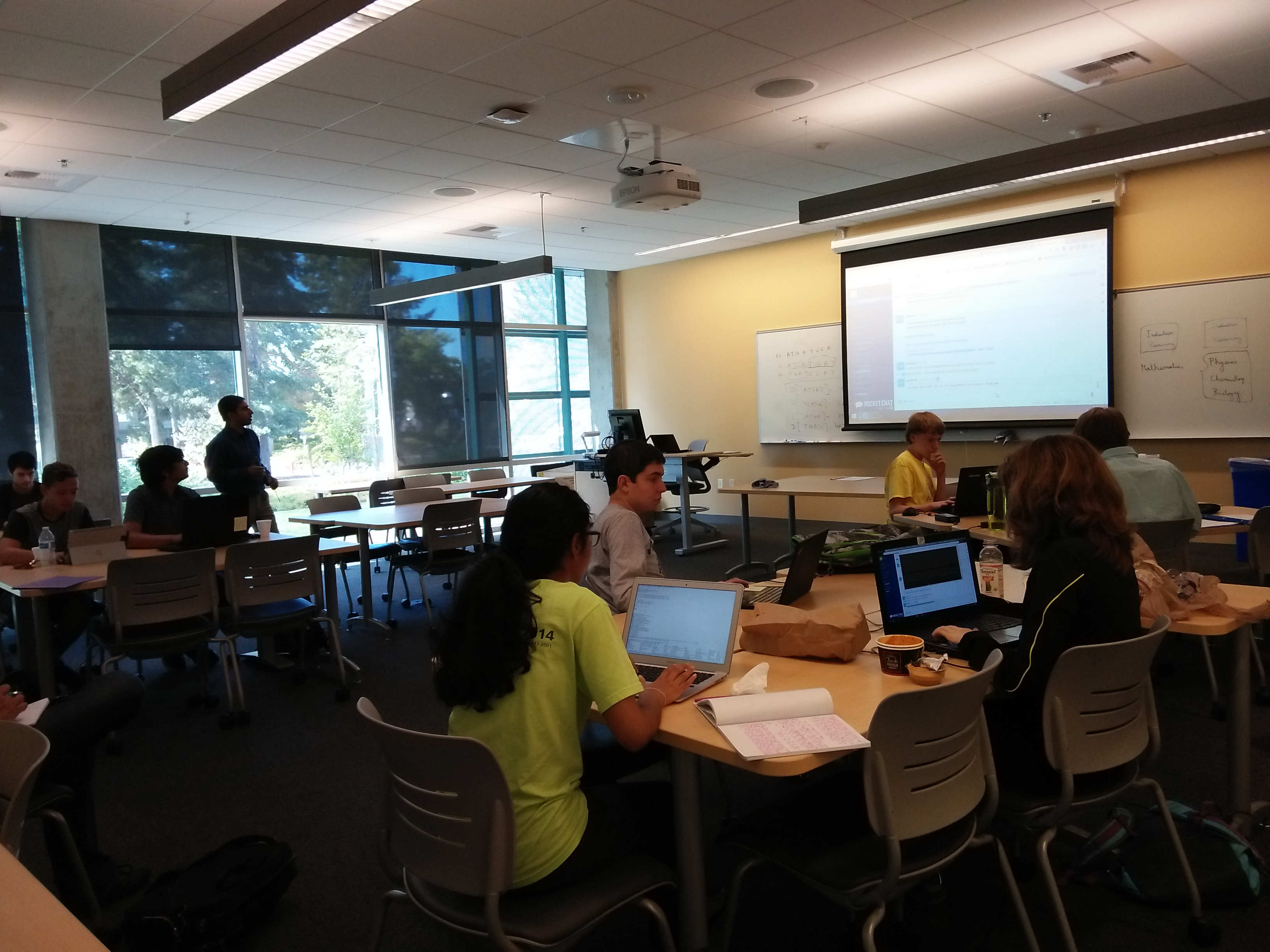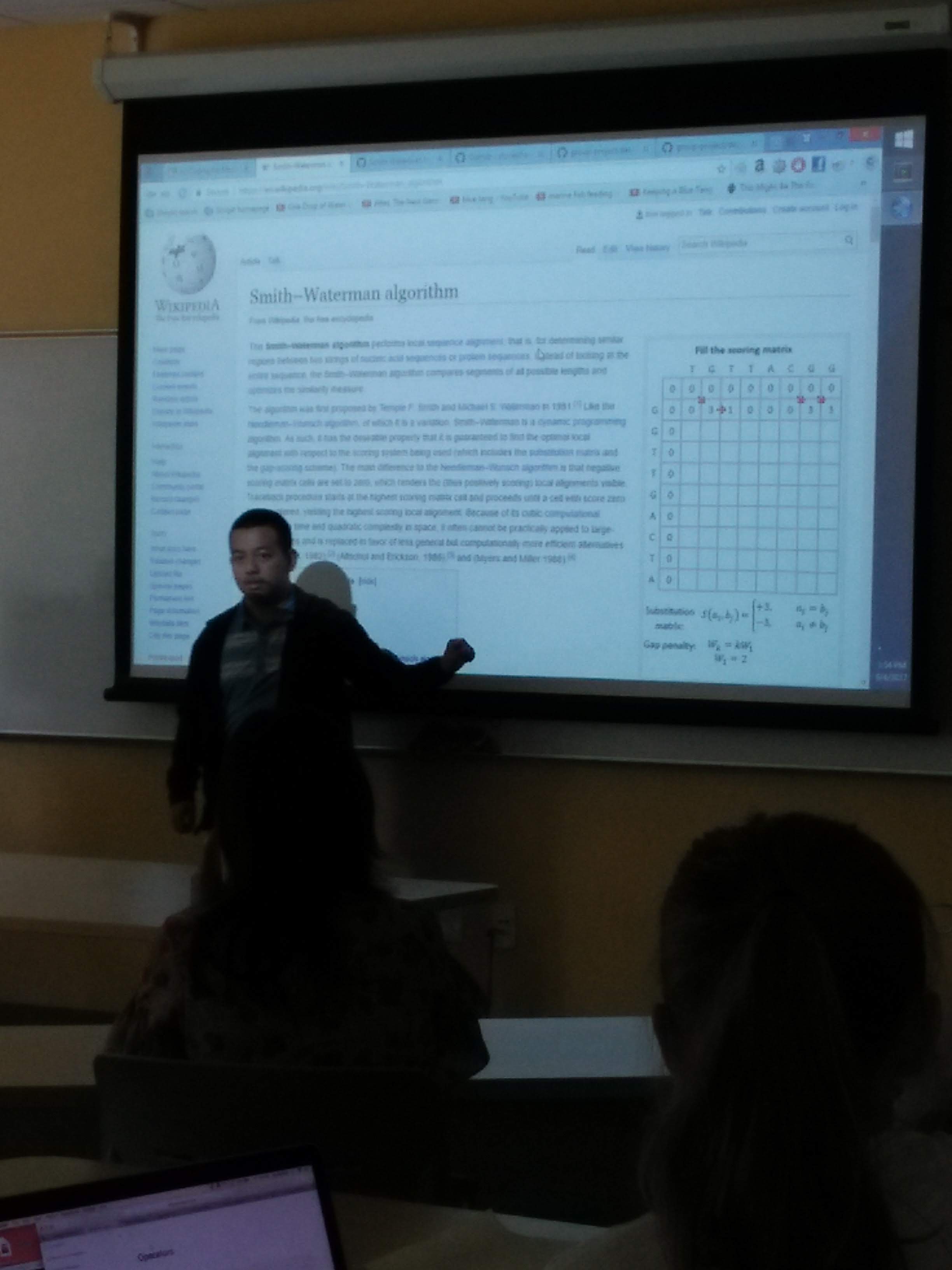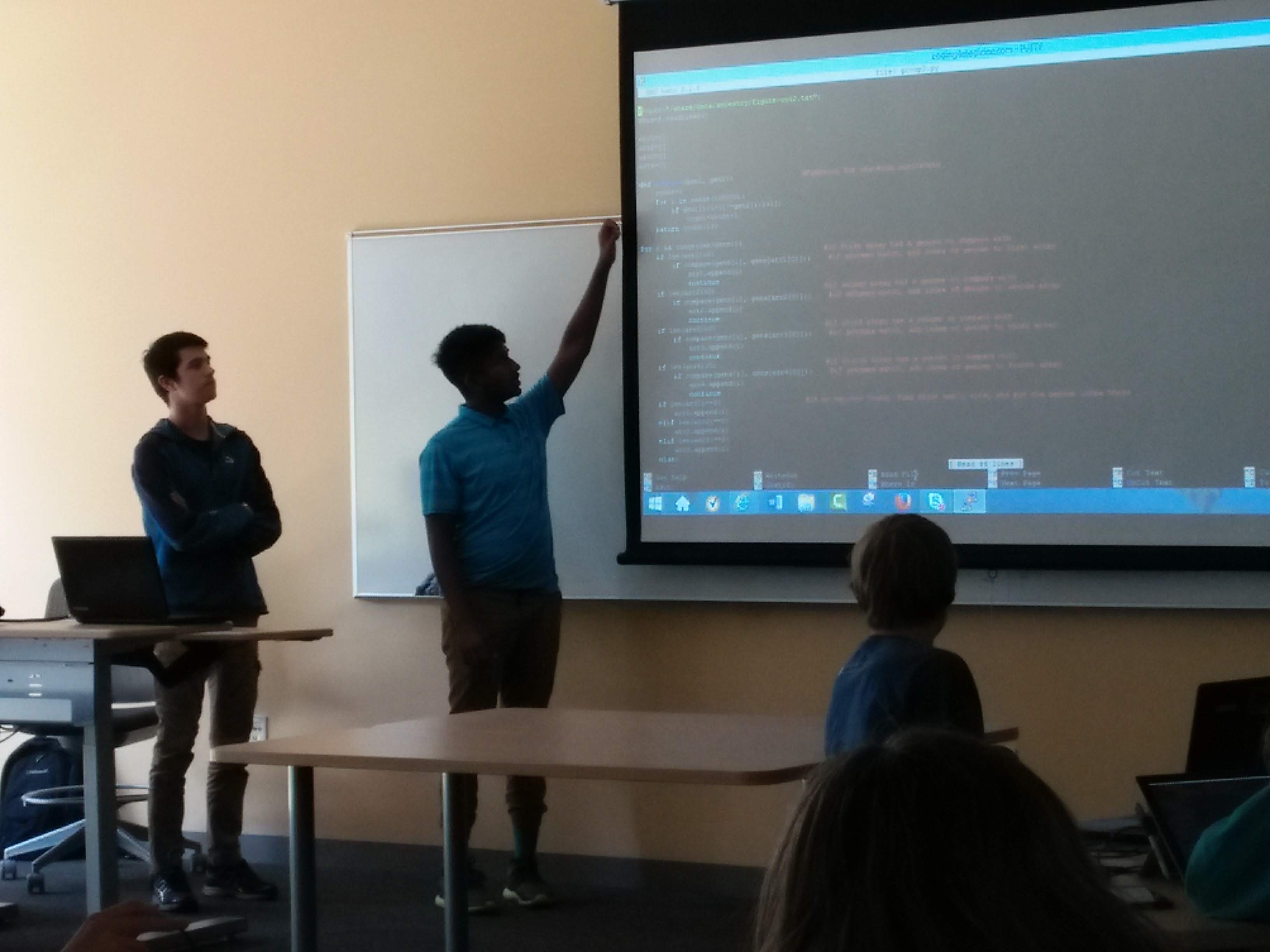Key Dates
| Team Registration Deadline: | Oct 31, 2025 |
| Project Abstract Due: | Dec 15, 2025 |
| Final Submission Due: | Mar 1, 2026 |
Announcing the 2025-26 Coding Gene.us Challenge for High School Students!

Are you ready to challenge yourself, showcase your skills, and compete with the brightest students from across the country? Join us for the 2025-26 Coding Gene.us Challenge, an exciting opportunity for high school students to explore their talents, think creatively, and win prizes!
Who can participate? Middle/high school students from grades 8-12 who are curious, motivated, and ready to take on a challenge.
Why join?
- Put your knowledge and creativity to the test
- Compete individually or as a team
- Win awards, certificates, and recognition
- Boost your college applications
Don’t miss this chance to shine. Get involved, get inspired, and show us what you’ve got!
For questions, contact us at info@coding4medicine.com.
Students hacking high school biology lessons for the AI age

In recent years, biology has become a data-driven science. From genomics to ecology, researchers now generate massive datasets that require computational tools for analysis and interpretation. As a result, coding has become essential for unlocking insights from biological data. A striking example of this shift is the awarding of last year’s Nobel Prize for groundbreaking work in solving the protein folding problem using AI and deep learning techniques.
However, the high school curriculum, including AP Biology, approaches the subject in a traditional way, focusing on memorization, textbook diagrams, and lab experiments. While these methods provide a solid foundation, they fall short in preparing students for the data-driven future of biology. A major obstacle is that most teachers lack experience in coding, making it challenging to incorporate computational biology into the classroom. Additionally, relevant biological datasets are dispersed across various online databases, often requiring domain knowledge and technical skills to locate, access, and interpret their complex file formats.
To bridge this gap, Coding Gene.us Challenge invites high school students to explore biology through a computational lens by creating accessible, easy-to-follow tutorials for their peers. The goal is to engage students, who are curious about both coding and biology, offering them a unique opportunity to combine these interests in a meaningful way. By involving students in hands-on, data-driven projects, the competition not only sparks interest in computational biology but also supports educators by providing classroom-ready resources and examples. Ultimately, this initiative aims to cultivate a new generation of scientists who are as fluent in coding as they are in using a microscope.
Rules

1. Project Guidelines
- Design a lesson that integrates high school Honors/AP Biology course content with data analysis and coding, providing biology teachers with a ready-to-use instructional resource.
- Or,
- Develop a lesson on a cutting-edge scientific topic, presented in a way that is clear and accessible for high school students and teachers. This lesson needs to demonstrate data analysis and coding aspects.
2. Eligibility
- Open to students in grades 8–12.
- Students may participate individually or in teams of up to 4 members. A student cannot be a member of more than one teams.
- All participants must be currently enrolled in a middle/high school or an equivalent program.
- Members of a team can be from different schools.
3. Submission Requirements
- You will submit a video tutorial, written tutorial, or a combination of both.
- Each team is allowed to submit exactly one entry to the contest. Teams may update their submissions until the closing time of the competition.
- All work must be original and completed primarily by the student(s).
- All external references must be properly cited.
4. Judging Criteria Projects will be evaluated based on:
- Biological concept being covered
- Presentation of biological database/dataset
- Presentation of data analysis through code
- Clarity of communication
- Relevance and usefulness
5. Important Dates
- Registration deadline: Oct 31, 2025 (midnight PST)
- Project abstract due: Dec 15, 2025 (midnight PST)
- Project submission deadline: Mar 1, 2026 (midnight PST)
- Finalist announcement: March 31, 2026
- Awards ceremony: April 5, 2026 (tentative)
6. Code of Conduct
- All participants must act with honesty, integrity, and respect.
- Collaboration is encouraged, but final submissions must reflect the students' own work.
- The organizers reserve the right to disqualify any entry that violates these rules.
7. Prizes and Recognition
- Top entries will receive certificates and awards.
- All approved submissions will be freely available from the Coding for Medicine website.
- Winning projects may be showcased on the competition website or at partner events.